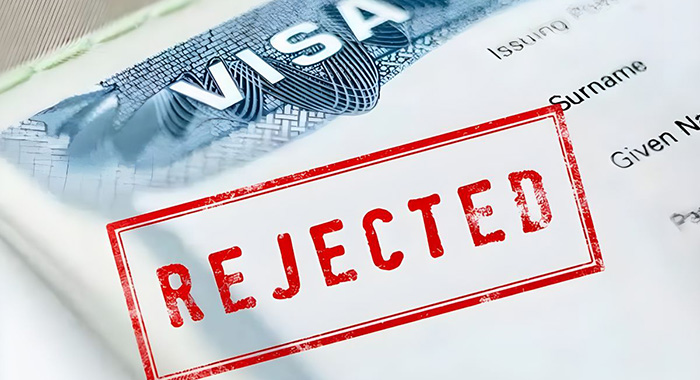Vincentian government officials and their immediate relatives may face US visa restrictions over the Cuban medical brigades that come to the country, according to a statement on Tuesday by the US Secretary of State, Marco Rubio.
In the press statement, dubbed “Expansion of Visa Restrictions Policy for Individuals Exploiting Cuban Labor”, Rubio announced the expansion of an existing Cuba-related visa restriction policy that targets “forced labour linked to the Cuban labour export programme.
“This expanded policy applies to current or former Cuban government officials, and other individuals, including foreign government officials, who are believed to be responsible for, or involved in, the Cuban labour export programme, particularly Cuba’s overseas medical missions,” Rubio said.
He said the policy also applies to the immediate family of such persons, adding that the Department of State had taken steps to impose visa restrictions on several individuals, including Venezuelans, under this expanded policy.
“Cuba continues to profit from the forced labour of its workers and the regime’s abusive and coercive labour practices are well documented,” Rubio said.
He said Cuba’s labour export programmes, which include the medical missions, enrich the Cuban regime, and in the case of Cuba’s overseas medical missions, deprive ordinary Cubans of the medical care they desperately need in their home country.
“The United States is committed to countering forced labour practices around the globe. To do so, we must promote accountability not just for Cuban officials responsible for these policies, but also those complicit in the exploitation and forced labour of Cuban workers.”
On Wednesday, Prime Minister Ralph Gonsalves was asked about the implication for St. Vincent and the Grenadines continuing to support countries such as Cuba, with which the US has cut ties.
“… I saw a new policy of the new government. I haven’t seen it in any policy framework,” Gonsalves said, adding that it was sent to him by his Minister of Finance, Camillo Gonsalves, who he said tends to follow such statements.
Gonsalves quoted the section of the statement that said that the US had taken steps to restrict visa issuance to Cuban and complicit third-country government officials and individuals responsible for “Cuba’s exploitative labour export program”.
The prime minister commented:
“Now, some persons in the US Congress have been saying …, mainly Republicans, that the doctors and nurses who come down here are part of trafficking in persons. I don’t know it is trafficking in persons. If you call it trafficking in persons, you make it the thing lose all meaning, because we are paying them, and it’s done very openly and very transparently.”
The prime minister said that while he had seen the general statement by the United States, “… I don’t know what it means in practice.
“I guess we will find out more because a lot of things now are being announced on Twitter or Facebook or something. But I saw this.”
He had earlier indicated that the finance minister might have seen the statement on social media.
However, the statement was also published on the State Department’s website.
“I’ll find out what this means — if it’s something which we have to be concerned about or not because I don’t know — but we are in a world with many new challenges arising,” he said.







This can’t be real ,
Vincentians, I hope you see the need to vote out this current administration. You and your family won’t be getting US visas aa a result of the actions of this great leader.
“If you call it trafficking in person, you make it the thing lose all meaning, because we are paying them.” whatever that mean. Are dey receiving all that dey work for in dear hand u know what I mean when I say in dear hand, r is most going back in dear gov. Hand?
Next story: abandonment… had somebody make it the thing lose all meaning? Because workers were reporting to their place of employment, some in my opinion were still performing.
What shameless convenience.
This visa restriction policy appears less about protecting Cuban doctors and more about attacking Cuba’s global influence, with SVG and other small nations caught in the crossfire. Gonsalves’ response should have been stronger, emphasizing both SVG’s sovereignty and the hypocrisy in the U.S. stance. If the U.S. genuinely wants to address forced labor, it should apply the same scrutiny to its allies and its own labor practices.